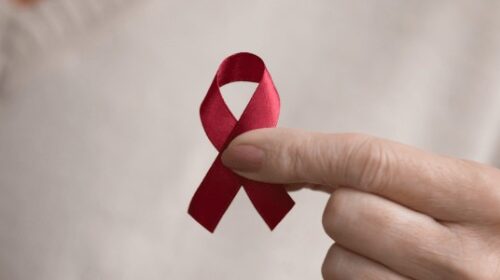Love, trust, communication, and connection are the cornerstones of healthy relationships. But what happens when addiction enters the picture?
Whether it’s an addiction to substances like drugs or alcohol or a behavioral addiction like gambling or pornography, the impact on personal relationships can be devastating if not taken seriously. But people who are struggling with addiction are not a lost cause. There is hope for the person addicted and their family.
We will explore how addiction can entangle emotions, strain bonds and offer guidance on navigating these challenges.
Addiction’s Impact on Relationships
Addiction is a complex disease that profoundly affects an individual’s behavior, emotions, and decision-making. All of these are essential aspects of a healthy relationship.
In the beginning, there is a potential for red flags in your relationship that may indicate the presence of addiction. However, not everyone can recognize them. And some people don’t fall into a deep addiction until later in life.
The further along the relationship is, the more connected people are to each other and their well-being. Over time, addiction can gradually consume the person and their family, eroding some foundational elements of a healthy relationship.
Trust
Addiction has an extreme impact on trust within relationships. When a loved one is dealing with addiction issues, there is often a breach of trust caused by broken promises, lies, and deceit.
Their words are different from their actions. They may try to hide or lie about their substance use or the extent of their problems. This deceit can start small, and over time many people dig themselves into deep holes of deception that they can’t seem to find a way out of without help.
As the addictive pattern continues, trust within relationships becomes compromised, and it’s difficult for people to rely on the person who is addicted, leading to an increased strain on relationships.
Communication
Healthy relationships require open and honest communication. But those can be hard for those struggling with addiction as they tend to avoid discussing their problems with their loved ones or become defensive when confronted.
Additionally, they may withdraw, causing miscommunication or disconnection from their loved ones.
Lack of healthy communication in relationships can result from fear of judgment or adverse consequences, further exacerbating the strain.
Intimacy
Deep relationships require both people to be vulnerable. This emotional connection and trust can be broken, leading to isolation for those struggling with addiction. They may distance themselves from family or remove themselves from the picture entirely.
People struggling with addiction often prioritize their substance or addiction over everything. The substance or behavior becomes their primary focus, no matter what. And this can leave little room for connection and intimacy with others.
The Impact on Loved Ones
Family and friends of people struggling with addiction experience a wide range of emotions, from frustration and anger to confusion and guilt. Addiction takes an emotional toll on everyone involved.
Relationships experience a breakdown of communication, and it becomes pretty challenging to maintain a healthy emotional connection amidst their loved one’s addictive behaviors.
The far-reaching impact of addiction on families shows up in various ways:
- Emotional issues
- Financial strain
- Codependency
- Social stigma
- Mental health struggles
- Health and safety concerns
- Breakdown of family dynamics
- Feeling neglect and abandonment
Rates of domestic violence, or intimate partner violence, is another dangerous impact on the families of people struggling with addiction. Studies show a higher rate of violence in relationships where one or both partners abuse alcohol.1
Children of people struggling with addiction are negatively affected by their parent’s substance use in a large way. They are more likely to struggle with addiction,2 and are at higher risk for most childhood disorders. Most significantly, eating disorders, behavior disorders, anxiety disorders, depression, post-traumatic stress disorder, and SUDs.3
Supporting Your Addicted Loved One
Having an addicted family member is exceptionally challenging. There are healthy ways to support your loved one without enabling them. You can do this in various ways:
Educate yourself
Learn about addiction and what it means to struggle with the disease. Remember, people with addiction don’t choose to live that way. Knowledge can help you better understand what they’re going through and help you to keep an open mind.
Approach with love and compassion
Leading with empathy for your loved one is a challenging but helpful way to approach the situation. You can tell them you care about their well-being and set boundaries to keep yourself safe.
Set clear boundaries
Consider your non-negotiables. Are you going to cut them off financially? Will you see them on certain days? Are you going to be strict about no substance use when they’re around you?
Be clear about your boundaries, share them with your loved one, and stick to them. Boundaries protect you and others from enabling the person struggling.
Avoid enabling and codependency
Be aware of how your actions can affect your struggling loved one. Enabling them can have a detrimental effect on you and them. It’s important to set healthy boundaries and, if you need to, practice tough love without abandoning them.
Enabling can show up in various ways:
- Giving them money
- Allowing them to use around you
- Making excuses for their behavior
- Covering for them
Remember, support is not the same as enabling. Codependency may inadvertently support their addictive behaviors. It’s not beneficial for them or you and can lead to you being taken advantage of or worsening their addiction.
Loved ones who enable addictive behaviors try to protect, okay, or “fix” the person struggling This behavior can hinder the person’s recovery process and damage the relationship.
Utilize support groups and resources
Look for support groups like Al-Anon, Nar-Anon, and others that help families of people struggling with addiction. Groups like these help you feel less alone and provide support from people who have faced similar challenges.
The Substance Abuse and Mental Health Services Administration has a list of resources for families of those struggling with mental health and substance use disorders.
Seek professional help
The person addicted isn’t the only one who needs help. Since addiction affects the entire family, each person close to them would benefit from professional support, whether individual or family therapy.
A mental health professional, preferably one with experience working with addiction, can help you navigate your feelings and the challenges you face when dealing with a loved one’s addiction. They can also give you guidance on healthy boundary setting.
Offer constructive support
You can empower your loved one to seek treatment and recover, but be mindful of how you do so. Don’t tell them everything they do wrong or bring up their past mistakes.
Constructive support can look like sharing resources and other education you’ve gathered. Let them know that you believe in them and know they can have a better life through recovery.
Nurturing Healthy Relationships After Addiction
Self-care and personal growth are essential components of nurturing healthy relationships after addiction. This requires effort from the person struggling with addiction and their loved ones.
Self-care for everyone
Both you and your loved one in recovery should have self-care practices to promote healthy mental and physical well-being. Prioritize self-development and embrace a growth mindset. Be open to learning new skills and engage in fulfilling activities.
Healing relationships
To heal, you have to move forward. Have open communication about triggers and do your best to avoid them. Additionally, avoid talking about your loved one’s past mistakes to create a positive and healthy present and future for you together.
Take an active interest in their recovery. Attend support meetings and have open conversations about what they’re working on. Your support will mean everything to them.
Building resilience
Addiction treatment programs are not only beneficial for the person struggling but also for their loved ones. It takes a lot of dedication and hard work, but you can rebuild relationships and become stronger than ever.
Rebuilding trust
It can be challenging to let your guard down with your loved one in recovery. Set realistic expectations and know that it is not an overnight process. Rebuilding trust will take time, and some wounds may never heal.
Open communication and prioritizing transparency and consistency are ways to rebuild trust with your loved one. And ongoing support between loved ones increases the potential for reestablishing trust lost through addiction.
Celebrate progress
Dealing with addiction is one of the most challenging things someone can do. Make sure your loved one knows you’re proud of the work they do in recovery.
Celebrate how far they’ve come, and acknowledge any positive steps they take, regardless of how small they seem to you.
If you or your loved one is struggling with addiction, the time to seek help is now. Early intervention promotes better chances of a successful recovery, and fewer negative effects will occur.
There is hope for those struggling with addiction; with dedication and support, it is possible to untangle the emotions and rebuild healthier, stronger relationships.
If you have a loved one struggling with addiction, we can help. Between mental health programming or addiction treatment, our individualized approach to recovery will help you heal as individuals and as a family.
Call Recovery Unplugged today at 1 (855) 975-1757.

























